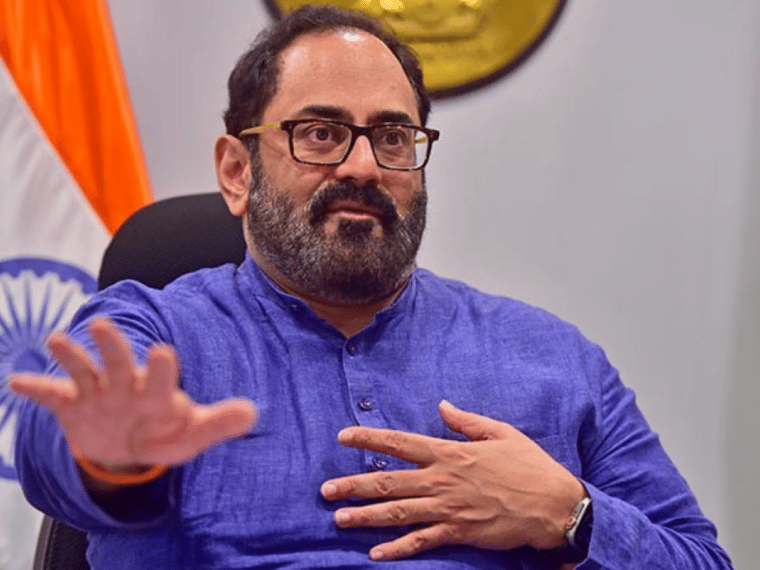
Citing his rationale, Chandrasekhar said that the country’s talent pool and the country’s investments in upskilling workers would pave the way for increasing the number of startups and unicorns
Without specifying any timeline for the target, the minister said the slope and trajectory of technology made it difficult to predict specific timelines
The statement has come at a time when the country has failed to add even a single unicorn to its list
Minister of State for Electronics and Information Technology Rajeev Chandrasekhar believes that India is well-placed to churn out 1 Lakh unicorns and 10-20 Lakh startups in the future.
Citing his rationale, Chandrasekhar said that the country’s talent pool and state investments in upskilling workers would pave the way for increasing the number of startups and unicorns.
“So, I think there is a lot of headroom to grow. We talk about 100-104 unicorns and 1 lakh startups. The target is really one lakh unicorns and almost 10 to 20 lakh startups. That is a kind of opportunity that India really represents for young Indians…,” Chandrasekhar told news agency PTI.
Without specifying any timeline for the target, Chandrasekhar said that the target of achieving 1 Lakh unicorns was doable. Shying away from answering the question, he said that the slope and trajectory of technology made it difficult to predict specific timelines.
The MoS noted that India’s ‘success’ with innovation, entrepreneurship, electronics manufacturing and digital innovation was just the tip of the massive opportunity before the country. While noting that India’s strides in global tech and digital space are just the beginning, Chandrasekhar said that there was tremendous headroom for the startup ecosystem to grow.
Lauding the public digital infrastructure in the country, he said that the state-backed IndiaStack has shown the world how technology could be ‘deployed for good, to benefit people, society and communities, and the country at large’.
He also asserted that the extent of digitisation of the government, governance and economy would accelerate even further in the coming years.
The tenure of Chandrasekhar has seen a complete regulatory overhaul with regard to the digital ecosystem. While the ministry has pitched its homegrown electronics and semiconductor manufacturing globally, it has also introduced many new reforms, ranging from IT amendments to the draft Digital Personal Data Protection Bill.
Not just this, he has also been involved in the upcoming Digital India Bill, which could replace the ailing, decade-old Information Technology Act, 2000.
However, the minister’s statement coincides with a funding winter that has gripped the entire Indian startup ecosystem. As per Inc42 data, the startup funding withered 78.5% year-on-year (YoY) to $580 Mn in June 2023. In the first six months of 2023, funding raised by Indian startups declined 72% YoY to $5.4 Bn, down from $19 Bn during the same period last year.
Not just this, global economic pressures and a funding drought have also made investors wary of Indian startups. Making matters worse has been a slew of corporate governance issues and a lack of profitability at most of the homegrown new-age tech companies.
So far this year, not a single startup has entered the unicorn club. Further, many have had to cut corners, fire employees and put a brake on expansion plans to extend their runways.
While there is no clarity on when the market will return to its full bloom, the minister’s optimism may find very few takers in the market. For now, it remains to be seen how Indian startups fare until normalcy returns to the world’s third-largest startup ecosystem.




 Fintech
Fintech Travel Tech
Travel Tech Electric Vehicle
Electric Vehicle Health Tech
Health Tech Edtech
Edtech IT
IT Logistics
Logistics Retail
Retail Ecommerce
Ecommerce Startup Ecosystem
Startup Ecosystem Enterprise Tech
Enterprise Tech Clean Tech
Clean Tech Consumer Internet
Consumer Internet Agritech
Agritech




























